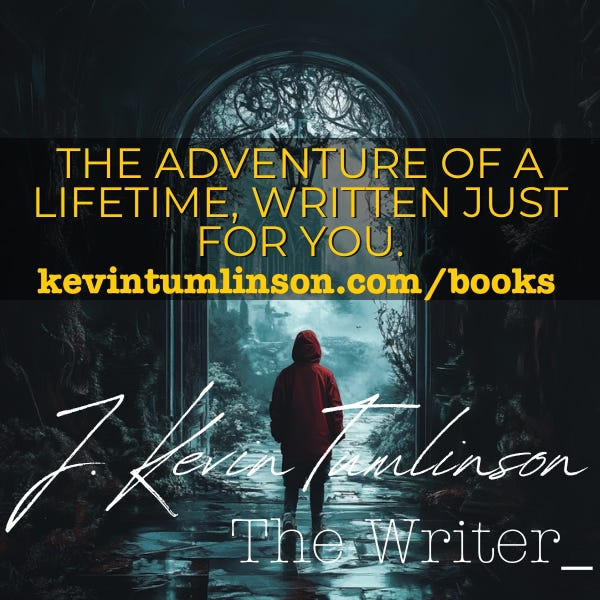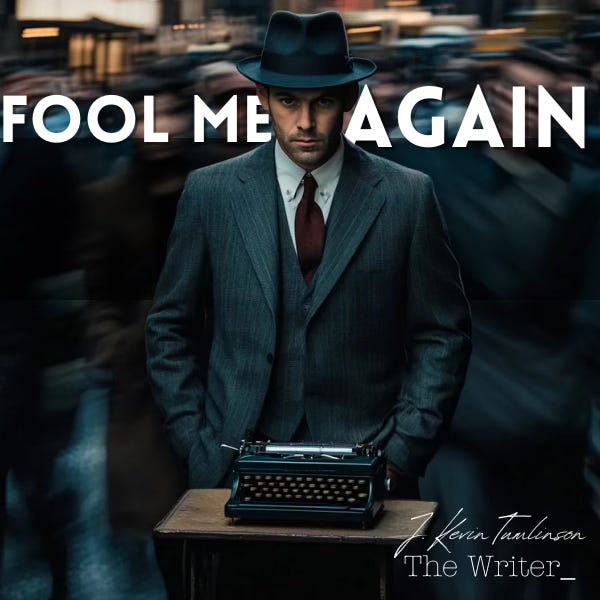There are two things I have a biased thing for, when it comes to books and movies and TV shows—two types of people I can never seem to stop having a fascination with, and never seem to get enough.
The first is writers.
The second is con artists.
The two aren’t as distinct as you might think.
I’ve been studying con artists lately. I have an idea for a story that I think would fit into the whole con-job genre. But it goes deeper than that. At least, it’s starting to.
Because in my exploration of con artists and the world of conning, I’m starting to see some patterns that line up with patterns from that other interest of mine. Particularly the aspect of being someone who sells stories for a living, who crafts tales for readers so they can be transported out of the here and now and into a world of adventure and intrigue and fantastic scenarios that otherwise would never happen to them.
It’s kind of a big con. But that isn’t necessarily a bad thing.
There’s a concept in the con world of a “white hat.” You may have heard of “white hat hackers,” for example—people who use their coding skills and cunning in a way that’s beneficial to society, rather than detrimental. Bad guy hackers would use those skills to crack a bank’s security and siphon out the funds, or compromise your password so they can steal from you directly. White hat hackers would do the same sort of thing, but the end result would be a warning to the bank or the authorities or to the potential mark—shore this up, fix this thing, you have a dangerous vulnerability.
Hacking, to me, is a form of con. It has all the earmarks. Deceptive practices, clever use of resources, subterfuge and spoofing. If you translated these same motifs to a street hustler, a guy running a card game on the sidewalk or a pickpocket working the crowd, or maybe trend it up to a Ponzi scheme or a real estate scam—beyond the technical specifics, the skills and the actions are the same.
So it isn’t surprising to learn that even among that other group of con artists, there are white hats.
Take Frank Abagnale, Jr. He’s the con artist who wrote the book that inspired the film, “Catch Me If You Can.” In the course of that story, Frank was eventually apprehended. And then he was offered a deal—use his conning skills to help the FBI track down forgers and other con artists.
In one interview, Frank warned that the age of technology has made cons “4,000 times easier.” He somewhat lamented that the con has gone digital, because at least when the con artist had to see the mark face-to-face, they might actually be persuaded to change their mind and not go through with it. Sometimes, humanity wins out.
We all love a good “con artist with a heart of gold” story.
Anyway, back to how writing is a con.
I’ve been thinking a lot about this. And the thing is, con artists actually share characteristics in common with all sorts of professionals. A good marketer knows how to read their “target,” the potential customer, and make the offer feel compelling. A good lawyer can read the jury and the judge, and shape the story of his case to fit the narrative most likely to win in court. A good sales person can read their customer, figure out their needs, and craft their pitch to sound as if this product will solve all those needs and make you attractive to the opposite sex, too.
And writers...
Well, we have to do pretty much all of the above, don’t we?
My job is to craft a story that lets you, the reader, tag along on an adventure that doesn’t actually happen, with a character who doesn’t actually exist, to obtain a prize or an outcome that doesn’t actually materialize in reality. It’s a little like lying to you for 300+ pages, and you paying me for the privilege.
The best cons are those the mark smiles about, after they fall for them.
I’m revealing this at great personal risk, by the way. “I don’t like being a mark!” you might protest. And nor should you! Being manipulated is just wrong. It should never happen.
Unless...
Well, frankly, unless you want it to happen.
Which you do.
I do, too.
Every time we pick up a novel. Every time we turn on the TV. Every time we go to a movie. We shell out our money, and effectively say, “Fool me. The more you fool me, the better.”
We don’t think of that as wrong. We’re in on the scam. And, ultimately, we know that what we’re dealing with is a white hat. We’re paying for that experience, because it’s full of possibility. It’s full of hope and fun misdirection. Like a magician showing us that the card we picked somehow ended up inside an uncracked egg. We aren’t offended that they didn’t really make it magically teleport in there. We’re thrilled that they are so skilled at fooling us that we can’t tell the difference. We’re thrilled because we want to believe, if just for a short time, that the magic is real.
Because what we believe is real. For us. For now. The only moment that matters.
That’s the real con. The one we play out on ourselves. The willing con. And when a writer does it right, when they craft that world in just the way you expect or want or need, you reward them with the best praise any of us could hope for.
“Fool me again.”

A NOTE AT THE END
My fascination with con artists actually goes way back. I remember being a kid and watching Cheers, and there would be those episodes where “Harry the Hat” would show up at the bar. Harry, played by Harry Anderson (who went on to lead his own show as the judge on Night Court), was a slick, smart, fast talking character in a fedora. He had clever little scams that always seemed to work, even when everyone knew they were being scammed. He could talk a circle around everyone until they were willingly giving him what he was after.
That fascinated me. That idea, that you could get people to do what you want, just by the words you use. That stuck. That embedded itself in me, even shaped who I was and who I became.
In a totally positive way, I promise.
I eventually managed to get my hands on a copy of his book, “Harry Anderson’s Games You Can’t Lose: A Guide for Suckers.” The title says it all. But it was my first “deep dive” into the world of the con artist. A bit dark for me, really. But fascinating. It taught me a lot. If you can find a copy, I recommend reading it.
I never became a con artist, obviously. I have these pesky morals and ethics. God is watching.
But the things I’ve learned from studying con artists have proven to be good tools, anyway. Tools that show up in benign ways in everyday life.
Entrepreneurs use them. Artists use them. It’s not about fooling people and stealing from them, in these contexts. It’s about understanding people—how they think, what they want, how to persuade them.
I prefer being a white hat about it. I’ve never had the stomach for cheating people. I’m not comfortable with lying and manipulating people. I don’t like doing things that hurt others, for my gain.
But I’ll confess, I do like fooling you.
I like being fooled, too.
One book, one show, one movie at a time.







It's interesting, I just finished listening to C.S. Lewis's "The Four Loves" and he brilliantly explains how each form of love can develop into a negative or a positive. There are "two sides to the coin" of almost everything in life, I think.
Correct Kevin,
...and psychotherapists lay a con on the unwilling/resistant client.
As a successful psychotherapist for 45 years, working the sceptical/hostile crowd, I've enjoyed snaring these folks with their stories, talking the language of the other side of the desk, leading them to a behaviour-changing paradigm shift outside of their habitual world. Thebizzarely naive meme that "they have to want to change" doesn't fit the world of court orders, aggrieved spouses, or psychiatric units. Instead, these clients are in desperate trouble forced on them by outside forces. The common feature that they don't know they are in trouble, is akin to the con's mark being persuaded into a 'need' formerly unimagined.
Good job! Paul